Renowned Iranian Film Director And Wife Stabbed To Death
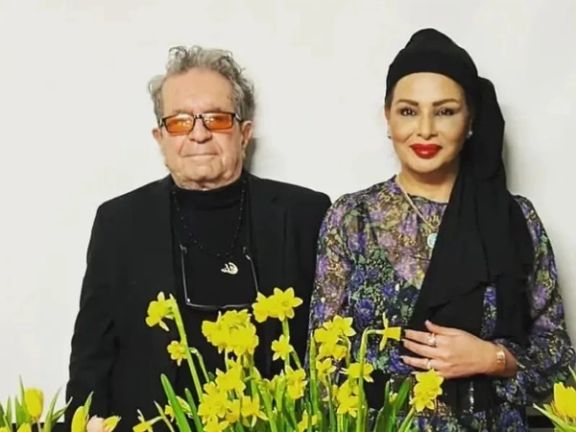
People and media in Iran have been shocked by the stabbing death of director Dariush Mehrjui and his wife, Vahideh Mohammadifar, in their home near Tehran.

People and media in Iran have been shocked by the stabbing death of director Dariush Mehrjui and his wife, Vahideh Mohammadifar, in their home near Tehran.
Local law enforcement authorities are currently investigating the circumstances surrounding the deaths, with the motive for the killings yet to be determined.
On Saturday evening, the police said the pair were stabbed to death in the neck and body in a gruesome incident involving multiple individuals.
Mona Mehrjui, the daughter of the director, found their bodies when she visited her father's home on Saturday night in Karaj, approximately 30 kilometers west of the capital, Tehran.
Mohammadifar had recently reported a burglary outside their home and direct threats from an individual brandishing a knife. She had also contacted the police regarding her concerns.
Mehrjui's notable stance against censorship and his vocal opposition to security measures imposed on Iranian cinema were well-documented. In a video message addressing the cancellation of the screening of his film La Minor, he asserted, "I can no longer endure this. I will mobilize and, alongside my team, stage a protest at the Ministry of Culture. I am ready to fight."
He was a renowned figure in Iranian cinema and was widely recognized for his contributions as a filmmaker and screenwriter. He was a pivotal figure in the Iranian New Wave cinema and was celebrated for his works, including The Cow, Mr. Naive, The Postman, The Cycle, Hamoun, Leila, and Pari.

As the war against Hamas rages on in Israel, Iran continued to leverage its proxies in Beirut this weekend while Israel prepared for a possible ground assault on Gaza.
While the Iranian foreign minister met with its proxy Hezbollah in Beirut, the Israeli national security adviser Tzachi Hanegbi warned the Lebanese militant group not to start a war on a second front, threatening the "destruction of Lebanon" if it did.
The regime’s UN representatives wrote on X further warnings against the Jewish state, calling the attack on Gaza a “genocide”, in spite of October 7’s attack on Israeli soil being the most deadly day for Jews since the Holocaust as militant slaughtered civilians in towns across Israel's south.
“If the Israeli apartheid’s war crimes and genocide are not halted immediately, the situation could spiral out of control and ricochet far-reaching consequences — the responsibility of which lies with the UN, the Security Council & the states steering the Council toward a dead end,” it stated.
On a visit to Lebanon as part of a regional tour this weekend, foreign minister Hossein Amir-Abdollahian claimed Hezbollah, its biggest proxy positioned on Israel’s northern border, had scenarios “designed” and “prepared” in case the blitz on Gaza does not stop.
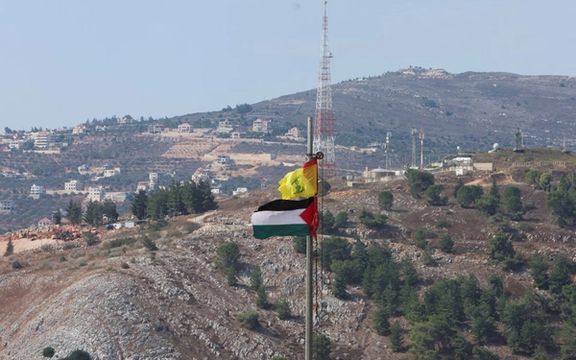
In strong words, he warned that if Israel did not stop its attacks on Gaza which have so far taken out key military figures, “their [Hezbollah’s] finger is on the trigger to shoot”, putting it right in the middle of the conflict it continues to deny involvement in.
Amir-Abdollahian added: “I know about the scenarios that Hezbollah has put in place. Any step the resistance [Hezbollah] will take will cause a huge earthquake in the Zionist entity.
“I want to warn the war criminals and those who support this entity before it’s too late to stop the crimes against civilians in Gaza, because it might be too late in few hours.”
As thousands of Palestinians are dying amidst the war, Hamas continues to use its citizens as shields across the enclave, with footage released by analysts showing the terror group blocking safe passage for Gaza’s heading south after warnings from the IDF of imminent air strikes on military targets.
On Sunday, a senior Israeli official claimed Iran is trying to open a second war front by deploying weapons in or through Syria. Responding to a post of the X social-media platform that posited such a scenario, Joshua Zarka, head of strategic affairs for Israel's Foreign Ministry, said the country is determined to prevent a multi-fronted assault.
It comes in the wake of attacks on Aleppo and Damascus airports last week. While Israel does not comment on such operations, it is widely believed it was aimed to prevent the transfer of Iranian weapons to its proxies in Syria.
While nations including the US has said there are no clear signs that Iran is behind the war, the State Department released information claiming the regime funds Hamas with at least $100 million per year, in addition to operational and weapons support.
In 2019, the US Department of the Treasury’s Office of Foreign Assets Control (OFAC), in partnership with the Sultanate of Oman, designated financial facilitators responsible for moving tens of millions of dollars between Iran’s Islamic Revolutionary Guard Corps-Qods Force (IRGC-QF) and HAMAS’s operational arm, the Izz-Al-Din Al-Qassam Brigades in Gaza.
Over recent months, a stream of meetings between Tehran and its Palestinian proxies in addition to Hezbollah in Lebanon have taken place across the region.
Both President Ebrahim Raisi and Supreme Leader Ali Khamenei have both come out in praising Operation Al Aqsa Storm which last week saw hundreds of Hamas militants enter Israel by land, sea and air on Saturday morning, accompanied by a bombardment of thousands of rockets.
Last week, Raisi said: "Their resistance in this glorious operation is exemplary. The determination of the young Palestinians has created a great epic and demonstrated that oppressing a nation, displacing people, and occupying their land may last for a while, but it infuriates the oppressed people, and they are no longer willing to endure the oppression. I hope God helps the fighters in liberating their land.”
The US and UK have moved warships to the region and have vowed unequivocal military support to Israel as it fights against the terror group, deterring further involvement from Iran and its proxies.
Last week in talks with Jewish community leaders, Biden said: "We moved the US carrier fleet to the eastern Mediterranean and we are sending more fighter jets to that region, and made it clear to the Iranians: Be careful.”
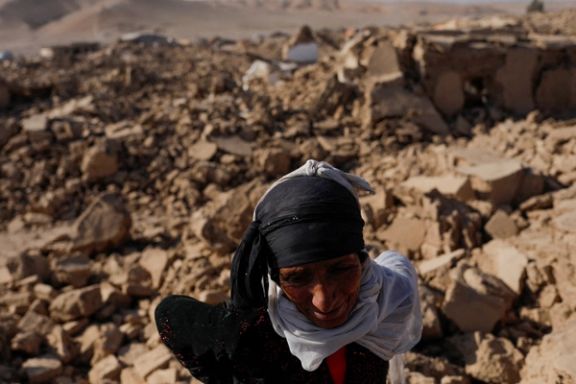
A powerful earthquake registering a magnitude of 6.3 struck western Afghanistan on Sunday, after a series of tremors this week brought wide-spread destruction.
It comes a week after a series of intense seismic events and aftershocks that claimed the lives of thousands and razed entire villages in the same region.
The quake was also felt in eastern regions of Iran including the religious city of Mashhahd.
According to the United States Geological Survey (USGS), the epicenter of the earthquake was approximately 34 kilometers beyond Herat, the provincial capital, and reached a depth of eight kilometers below the surface. The European-Mediterranean Seismological Centre (EMSC) reported a magnitude of 6.5 on the Richter scale.
As of midday local time there were no official reports about casualties and damage.
The earthquakes that occurred on October 7 had catastrophic consequences, completely decimating villages in Herat, marking one of the most devastating seismic events in the nation's recent history.
Tragically, more than 90% of the individuals who lost their lives were women and children, according to UN officials.
Taliban officials said that the earthquakes last week claimed the lives of over 2,000 people across the province. The epicenter was situated in the Zenda Jan district, where UN data indicates that 1,294 people lost their lives, and 1,688 sustained injuries.
The 6.3-magnitude quake demolished hundreds of mud-brick homes that were ill-equipped to withstand such powerful tremors. Schools, health clinics, and other vital village facilities also crumbled.
Survivors grapple with the profound loss of multiple family members, and in many places, the number of volunteers who have arrived to sift through the debris and excavate mass graves now exceeds the remaining residents.
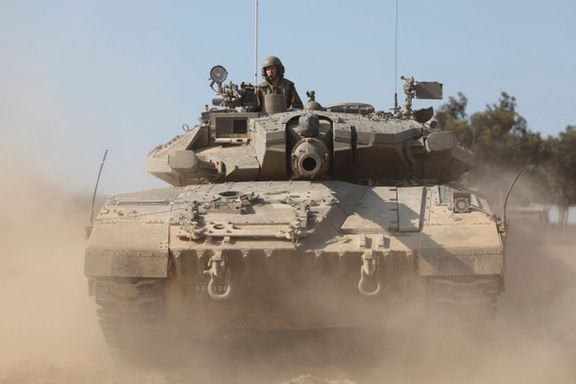
A senior conservative Iranian politician has said that if Israel launches a ground offensive in Gaza, Iran’s other proxy forces should join the war.
Iranian media on Sunday quoted Ali Motahari, former deputy speaker of the Islamic Republic’s parliament, who often appears as a voice of moderation on some issues, called the Lebanese Hezbollah and Syria “Iran’s forces”.
He stated that “We should not be indifferent until the operation starts,” and added that Iran’s allies should “play a deterrent role.”
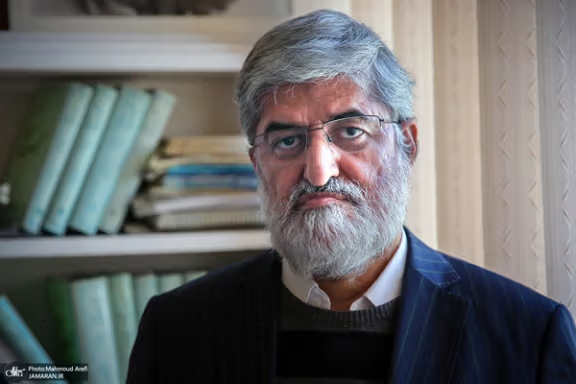
Motahari called for “all the means prepared in past years should be deployed. Naturally, such plans should already exist. Mr. Amir-Abdollahian’s [foreign minister] trip to Syria and Lebanon showed that such coordination is taking place. He did mention that if a ground attack takes place against Gaza, others in the resistance front will become active.”
Hossein Amir-Abdollahian who visited Qatar on Saturday met Hamas chief Ismail Haniyeh, leading to calls by many observers for the United States to push Qatar to distance itself from Palestinian militants.
A senior Israeli official accused Iran on Sunday of trying to open a second war front by deploying weapons in or through Syria as Israel steps up its counter-offensive in Gaza to the south.
Responding to a post of the X social-media platform that posited such a scenario, Joshua Zarka, head of strategic affairs for Israel's Foreign Ministry, said: "They (Iranians) are."
The original post also said "the Israelis are determined to prevent" such developments. To that, Zarka responded" "We are."
Syria accused Israel of carrying out strikes against Damascus and Aleppo airports last week.
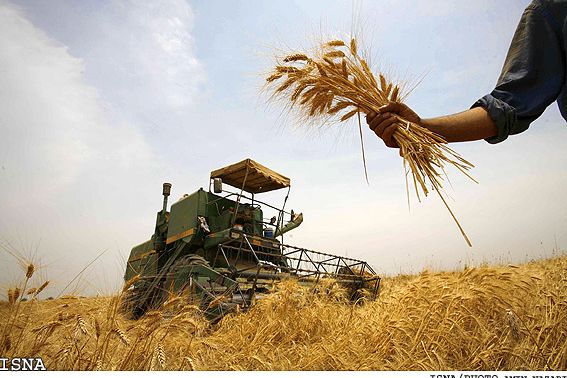
The Iranian government’s failure to announce new “guaranteed purchase prices” for wheat and full payment for last year has led to a delay in next season’s cultivation.
Iran's Supreme Leader Ali Khamenei has always encouraged self-sufficiency in wheat production as a strategic crop. The government purchases farmers’ crops at a guaranteed price announced before the beginning of every crop year towards this goal.
Bread, which is heavily subsidized, is a major staple in the Iranians’ diet the shortage of which may instigate massive popular discontent or even protests and riots.
In the past few weeks, government officials have repeatedly claimed that the new prices, which should have been announced by July 22, would be revealed “soon”. But nearly three weeks after the start of Iran's farming year (September 23) confusion still reigns and many wheat producers have not begun planting winter seeds for harvest in spring, unsure whether new rates will justify higher production costs resulting from inflation.
Meanwhile, Arsalan Ghasemi, chairman of the agriculture and food industries committee of the Agricultural Trade Chamber told Fars news agency Friday that the Planning and Budget Organization has not authorized the payment of around 25 percent of the government’s debts to farmers for the crops purchased last year due to its allocated budget having run out.
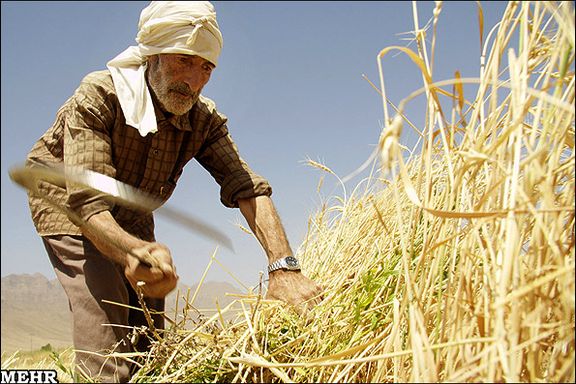
“Farmers will lose their trust [in the government] due to the Planning and Budget Organization’s approach. This is harmful to self-sufficiency in wheat and production of basic commodities in the country,” he said.
Iran has attained self-sufficiency in wheat production a few times since 2004 but in most years the government has had to import more than half of the country’s wheat required for bread, seed, and food industries. Wheat imports surged to seven million tons in 2013 and a record nine million tons 2021 when domestic crops were hit by the worst drought in the past fifty years.
Iranians consume over 160 kilograms of bread annually and rank second in the world per capita consumption of bread after Turkey. The country requires at least 14 million metric tons of wheat for bread and production of other foodstuff such as pasta.
According to Deputy Agriculture Minister Mojtaba Khayam-Nekouei, the government purchased 9.7 million tons of wheat from farmers at the guaranteed price of 150,000,000 rials per ton (under $500) during the previous crop year. This is roughly competitive with international market prices.
Farmers demand a much higher payment for the current year arguing that Iran’s 50-percent annual inflation has hugely increased all their production costs including labor.
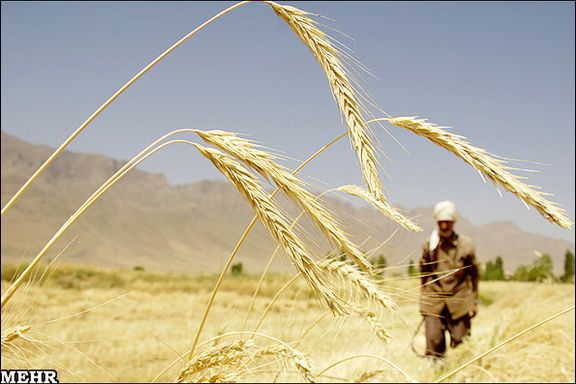
Jafar Hosseini, an advisor to the Chamber of Agricultural Unions, said Friday that the government’s guaranteed price, which it was supposed to announce before July 22, has been set at 195,000 rials per kilo. He said anything less could dissuade farmers from planting. According to Hosseini, other farmers including those producing oil seeds are facing similar problems as wheat producers.
Bread prices have jumped by up to 40 percent in most provinces since March despite officials underlining before that the price of bread was President Ebrahim Raisi’s “redline”. The hike in the price of bread was a result of a government decision to scrap the subsidy for imported wheat, flour and other essential items.
Iran is among the world’s top twenty producers of wheat. The country ranked 12 globally in 2022 with 15 million tons and also a major importer.
In recent years the area under wheat cultivation has increased to around five million hectares nearly 3.5 million hectares of which is rainfed.
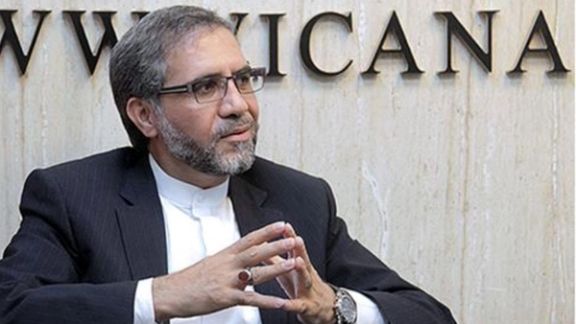
A member of Iran's National Security Committee in the Parliament admitted Washington has warned the regime off involvement in the conflict which has already claimed thousands of lives.
Abbas Golroo said, "The Americans ... sent us a message not to get involved in the war".
Shortly after the attack launched when thousands of Hamas militants infiltrated Israel by land, sea and air, the US began moving warships and aircraft to the region in support of Israel and as a warning to the regime.
On Friday, a second carrier strike group will begin making its way to the Mediterranean in addition to scores of aircraft already heading to US military bases around the Middle East.
Munitions have already arrived in Israel and special operations forces are now assisting Israel’s military in planning and intelligence.
While thousands of Israelis and Palestinians are dying in the war declared by Hamas last Saturday in the single most deadly day in Jewish history since the Holocaust, he said the Hamas onslaught is a “legitimate defense” as per the United Nations Charter.
He made the remarks on Saturday as the regime's top leadership expressed solidarity with the terror group for the unprecedented attack which took Israel by surprise on a religious holiday in a haunting reminder of the Yom Kippur War 50 years ago.
“The operation carried out by Palestinians was notably intricate, involving elements of cyber warfare, drones, aerial assaults, ground advancements, and field actions," he said. "It was executed with an element of surprise, resulting in casualties and significant damage to Israel.”
Golroo added that the Islamic Republic has consistently shown support for Palestine, and it has provided assistance, indicating a long-standing commitment to the Palestinian cause.